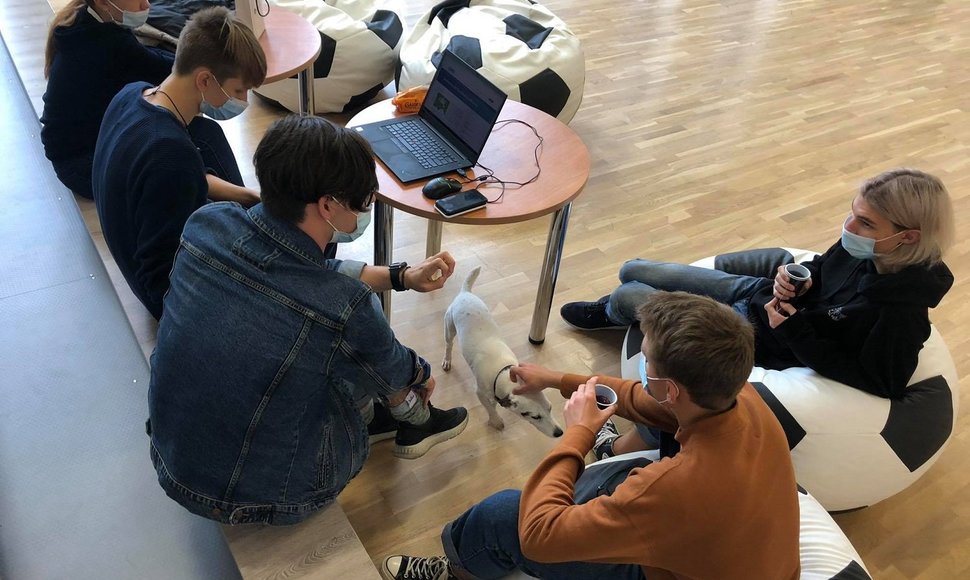Hackathons are typically expected to help a team generate an idea, set it on the right path, and establish a functioning start-up. Among the best-known international success stories, we can find the platform Zaarly, which is aimed at facilitating home refurbishing, along with EasyTaxi or Carousell. That said, there are good examples of hackathons creating start-ups in Lithuania as well – the Miesto Meniu app was created in Marijampolė, Aleksandro Kiemas in Panevėžys, and Telšė in Telšiai.
Advice for start-up creators – don’t be afraid to make mistakes
The main idea behind the Startuoliai Keičiantys Visuomenę initiative is to create the conditions for enthusiastic youths to come together and tackle regional or even global problems. That said, the development of start-ups cannot be separated from difficult challenges.
“When creating start-ups, your success depends on a multitude of factors, but one of the most important is the relevance of the problem at hand and the demand for a solution on the market. The team also has an important role, along with its belief in the start-up, and its ability to critically evaluate, react and adapt the start-up idea based on the needs of the market and clients,” advises Roberta Rudokienė, head of the start-up ecosystems division Start-up Lithuania at hackathon partner VšĮ Versli Lietuva.
Women in the Lithuanian start-up arena
One of the initiative’s partners is the mentorship programme Women Go Tech (WGT). Emilija Pečiulytė, head of communications for WGT, believes that hackathons can help prevent common mistakes because the mentors who participate in these creative workshops often have experience in developing start-up activities.
“The challenges for start-ups are usually related to the need to create a new product that does not yet exist on the market. Firstly, the development of a new product demands consistent financing, attracting talent, speed, and, finally, advice, that can help avoid critical mistakes,” E. Pečiulytė says.
According to the WGT communications chief, the greatest challenge in today’s start-up world is its closed-off nature, particularly for women. Nevertheless, with the growing number of positive examples of women developing successful start-ups, a higher number of women in the Lithuanian technology sphere no longer looks like an unreachable dream. “Women Go Tech alumni such as Lympo co-founder Ada Jonušė and Skaistė Lazdauskaitė – who created the educational start-up Reflectus – are excellent examples that encourage women not to be afraid and to develop their business ideas,” E. Pečiulytė says.
Hackathons – an opportunity to build a career path
Not being afraid to make mistakes and courageously entering new and unexplored territory – this is the advice Prisijungusi Lietuva offers to innovators. According to the project’s activity coordinator Simona Gogelytė, hackathon-type events are popular in the capital but are far less common in the regions. The project team has therefore decided to seek enterprising youths and talents across all of Lithuania.
“We want get the youth in smaller cities and towns interested in hackathons. Creative workshops are open to young people aged 14-29. Oftentimes this format becomes a jumping-off point for creative youths, and so we hope to create an opportunity for all the country’s youths this event cycle to put the ideas buzzing in their heads to try out and perhaps build a career while still in school or university,” S. Gogelytė says.
According to her, in every region teams will compete for the title of the best idea and the winners will meet at the national hackathon finals where they will compete for the grand prize. The winners will be awarded 500 euro stipends and Start-up Lithuania mentorship sessions to further develop their ideas or products. To register for this hackathon, you only have to visit the website www.prisijungusi.lt and submit your application.
The idea’s partners – Hostinger, WGT, and Startup Lithuania – have prizes for both the winners and all other participants.












